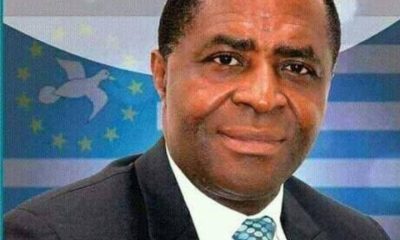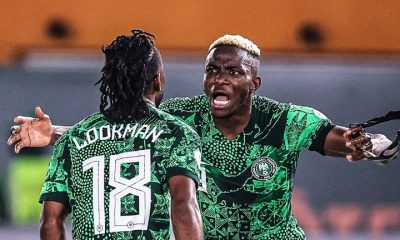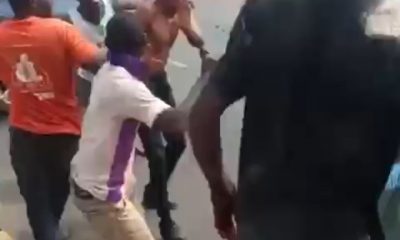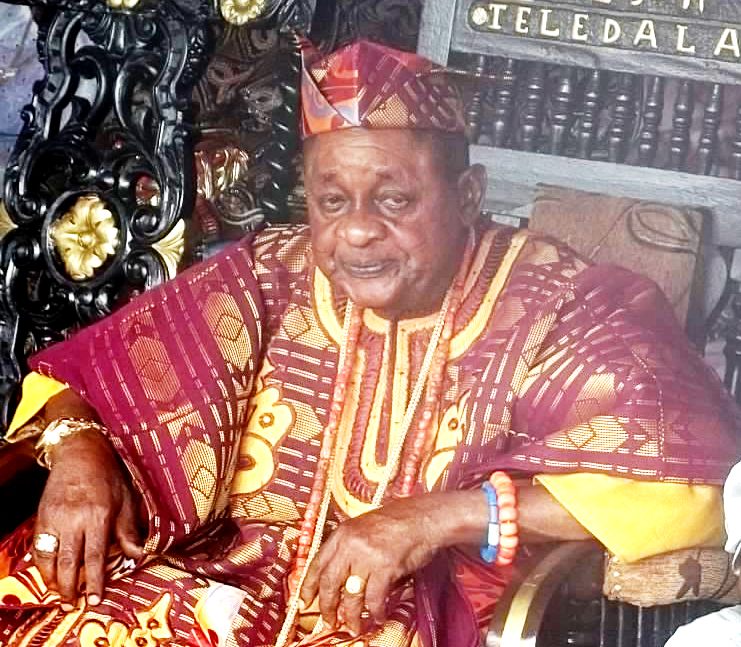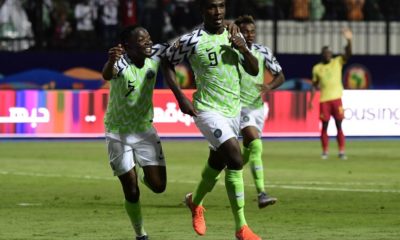columns
TuesdayRapAround: Another Look At The Travail Of People Of Southern Cameroon

Another look at the travail of people of Southern Cameroon By Michael Ayotunde
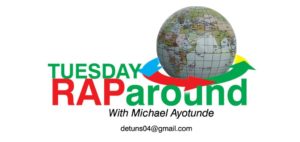
The story of the people of Southern Cameroon, a former southern part of the British mandate territory of British Cameroons in West Africa, is a very dicey one.
The region has been part of the Republic of Cameroon since 1961, where it makes up the Northwest Region and Southwest Region. Since 1994, pressure groups in the territory have sought independence from the Republic of Cameroon, and the Republic of Ambazonia was subsequently declared by the Southern Cameroons Peoples Organisation (SCAPO) on 31 August 2006.
Before this time, there have been several complaints against the government of Cameroon bothering on infringement, discrimination against the minor Anglophone region and human right abuses in the area.
For instance, on January 9, 2003, the Southern Cameroon National Council (SCNC) and SCAPO filed a complaint with the African Commission on Human and Peoples’ Rights against the Republic of Cameroun. Among other allegations, the complainants alleged that the Republic of Cameroun is illegally occupying the territory of Southern Cameroons. The Complainants alleged that the Republic of Cameroon has violated Articles 2, 3, 4, 5, 6, 7(1), 9, 10, 11, 12, 13, 17(1), 19, 20, 21, 22, 23(1), and 24 of the African Charter.
The SCAPO ultimately seek the independence of the territory of Southern Cameroons. In a decision reached at its 45th Ordinary Session on May 27, 2009, the African Commission on Human and Peoples’ Rights found that the Republic of Cameroun has violated Articles 1, 2, 4, 5, 6, 7(1), 10, 11, 19 and 26 of the Charter. The Human Rights Commission however determined that Articles 12, 13, 17(1), 20, 21, 22, 23(1) and 24 have not been violated.
The Human Rights Commission further recognized that under the African Charter and broad international law, Southern Cameroons meets the definition of a “people” under international law “because they manifest numerous characteristics and affinities, which include a common history, linguistic tradition, territorial connection, and political outlook”. The Human Rights Commission declared itself incompetent, to rule on allegations that occurred prior to 18 December 1989, date on which the African Charter came into force for the Respondent State (Republic of Cameroun).
Hence, the Human Rights Commission declared itself incompetent to rule on the complainants’ allegations with respect to events that occurred from the 1961 United Nations plebiscite to 1972 when the Federal and Union Constitutions were adopted to form the United Republic of Cameroon during which the Complainants claim the Respondent State (Republic of Cameroun) “…established its colonial rule there, complete with its structures, and its administrative, military and police personnel, applying a system and operating in a language alien to the Southern Cameroon.” The Human Rights Commission stated, however that, if the Complainants can establish that any violation committed before 18 December 1989 continued thereafter, then the Commission shall have competence to examine it.
Not deterred by this development, the group has continued in its avowed mission to see the region carved out of the present Cameroon. Needless to say that its activities have been met with brutal force and clampdown by government forces, a development that has forced thousands of its people to seek refuge in neighbouring countries – Nigeria inclusive.
According to a report on Daily Mail Online, not fewer than 30, 000 Cameroonians have fled the region to neighbouring Nigeria.
At a point when leaders of the group were said to be having a secret meeting in Abuja on January 5, they were rounded up and arrested by government security forces.
According to reports, they were held incommunicado until January 26. And to the amazement of leaders of thought and world bodies including the United Nations refugee agency, UNHCR, SERAP, which kicked against the way and manner the arrest was carried out, the separatists were repatriated by the Nigerian government. The extradition, no doubt, was carried out in defiance to wide condemnation, even from UN agencies and the US.
Amnesty International, in a statement, said leaders of the independence movement in the Anglophone regions of Cameroon could be at risk of torture and an unfair trial if extradited from Nigeria, where they have been arrested and detained in secret for one week. “By holding these activists in secret, without charge, the Nigerian authorities are failing to respect both national and international law. If they are extradited to Cameroon, they risk an unfair trial before a military court and the deeply disturbing possibility of torture,” said Osai Ojigho, Director of Amnesty International Nigeria.
“Efforts to tackle the Anglophone crisis should always respect the law, and avoid restrictions on freedom of expression. Authorities in Nigeria should immediately disclose the activists’ whereabouts, allow them access to a lawyer, and unless they have sufficient evidence to charge them with a recognisable crime, release them immediately,” said Mr. Ojigho.
This, of course was the position of AI before the activists were extradited by the Nigerian authority.
While justifying the extradition, however, Nigeria’s National Security Adviser Mohammed Monguno said at a trans-border security meeting in Abuja that the extradition was ordered to preserve Cameroon’s unity and sovereignty. “President Muhammadu Buhari assures you that we will take all the necessary measures, within the ambit of the law, to ensure that Nigeria’s territory is not used as a staging area to destabilise another friendly sovereign country,” Monguno told the meeting.
He said both President Paul Biya and the entire people of Cameroon have the backing of Buhari in finding lasting solution to the country’s internal crisis.
The United State Government saw the extradition of the hapless activists as brutal. It however called on Cameroon to respect the rights of English-speaking separatists who have been extradited from Nigeria.
“The US condemns the ongoing violence in Cameroon’s Anglophone regions,” Heather Nauert, the US State Department’s spokeswoman, tweeted. “We call on the government of Cameroon to respect the human rights, including due process, of the 47 Cameroonians forcibly returned from Nigeria’s custody to the Cameroonian authorities on January 26.”
To this end, Southern Cameroon is said to be a member of the Unrepresented Nations and Peoples Organization (UNPO) since 2005 and a charter member of the Organization of Emerging African States (OEAS).
The UNHCR has accused Nigeria of breaching international agreements, saying Cameroonian government has called them “terrorists” and said they will “answer for their crimes”.
This has once again put a big question mark on the sincerity of governments of Nigeria and Cameroon. The hurried manner with which they are selectively using and applying the word – ‘terrorist’ calls for serious concern.
This is akin to giving dog a bad name with a view to nail it. In a similar fashion, the Nigerian government was quick to label the notorious IPOD (Indigenous of People of Biafra in Southern Nigeria) group a terrorist organization, hence its summary proscription. Whereas, despite the incessant attacks and senseless killings by marauding Fulani herdsmen, the Nigerian government has refused to tag them terrorist group. As such, the perceived double standards has succeeded in creating suspicion and disaffection for the Muhammadu Buhari-led administration.
Some of the peculiar scenarios for both groups (SCAPO and IPOD) include – concern over marginalization, perceived domination, longstanding resentment at perceived discrimination, demands for greater autonomy, and then secession, in the face of government’s refusal to truly form a government of national unity to foster mutual cohesion and understanding; a state where every section irrespective of their size, tribe, religion and political, economic inclination is given fair treatment; where there is equity, fairness and justice.
One wonders why, in spite the proclamation of democratic tendencies, most African leaders still exhibit the traits of maximum rulers. They rule with iron fist. They never subscribe to the law of the land; common sense, recourse to rule of law and due process; regard to fundamental human right, constructive engagement and negotiation.
It has been said over and over that true leaders will always be remembered for two things – the problem they created and the problems they solved. It is therefore, left, for the present day leaders across the globe to genuinely ask themselves if – they’re solving problem or creating unnecessary problem for the generations coming after them.
The earlier relevant agencies and other world bodies look into these issues with a view to fighting against endemic abuse of office by these shylock leaders, the better. The UN should rather take the centre stage by taking decisive steps against these maximum rulers, especially in Africa.
It is obvious that they profess one thing, and eventually do the opposite. They cannot be trusted. This SOS is urgently required for the downtrodden across Africa, and beyond.
-
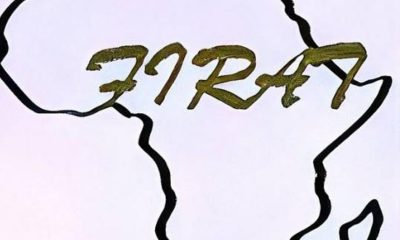
 News4 days ago
News4 days agoFIRAT Offers USD 200,000 SnapGenius Research Facility To Boost Research Excellence In African Universities
-
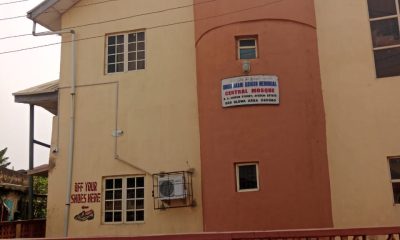
 News4 days ago
News4 days agoPolice Commence Investigation As Worshiper Mobbed To Death At Osogbo Central Mosque
-
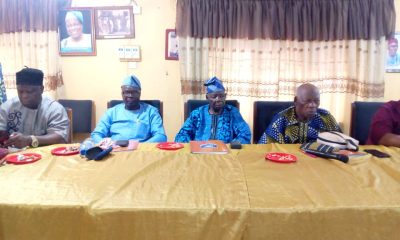
 News4 days ago
News4 days agoPensioners Threaten Legal Action Against States Over Unpaid Pension Increases, Outstanding Entitlements
-
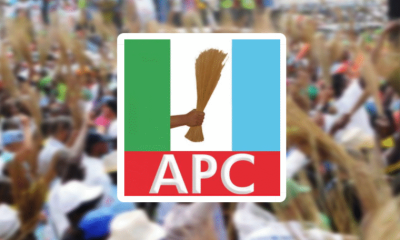
 News4 days ago
News4 days agoAPC Obokun Feud : FAS Sues For Peace, Urges Party Members To Embrace Dialogue





